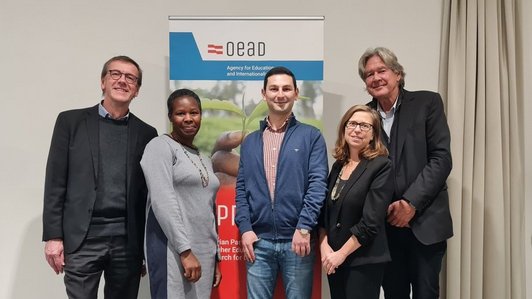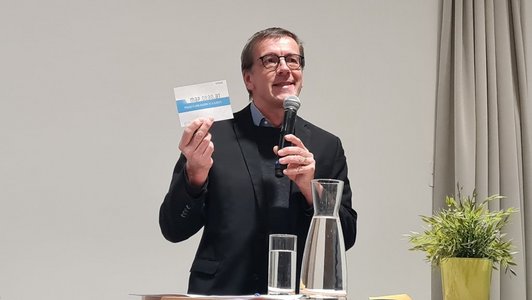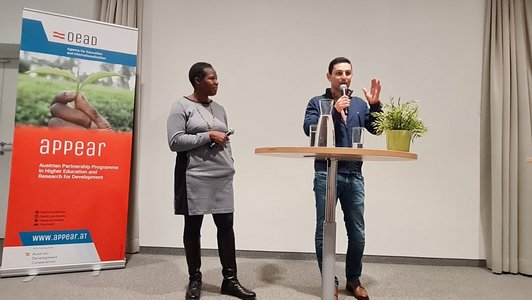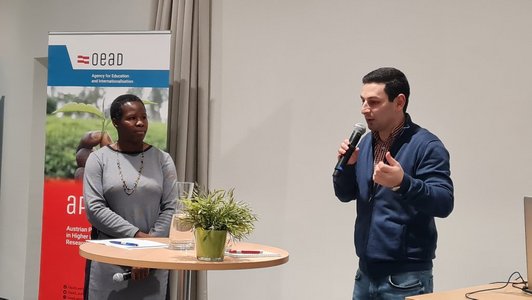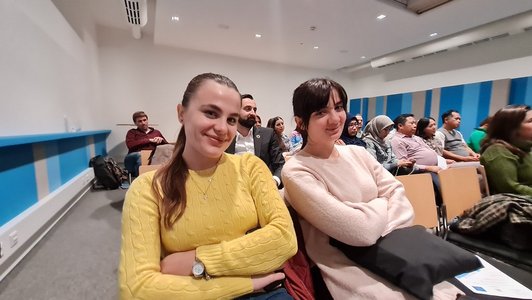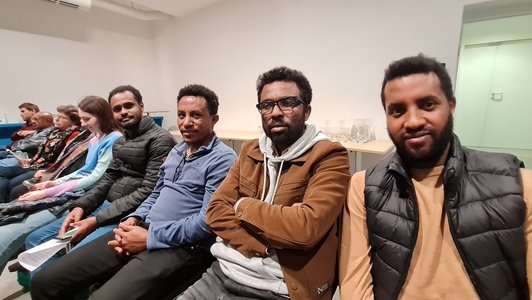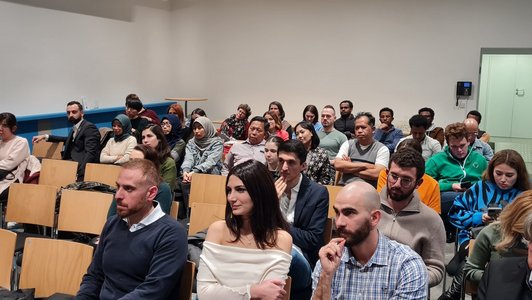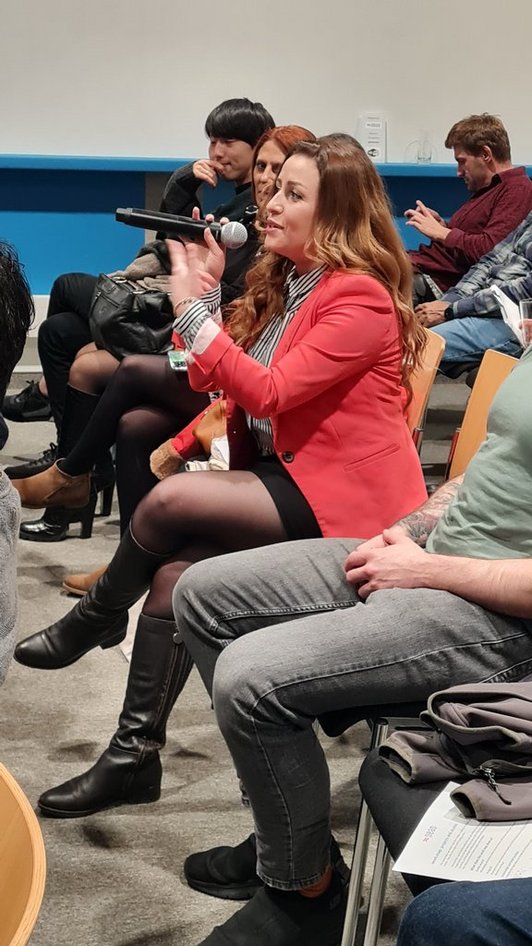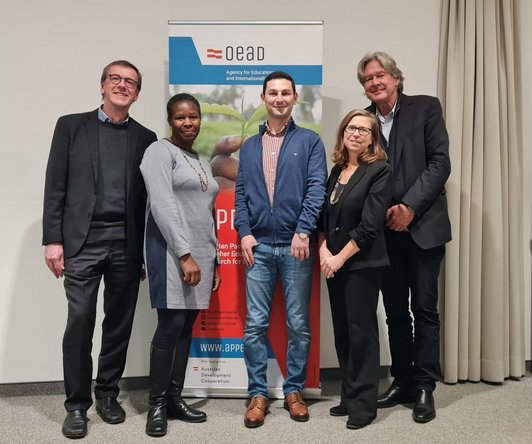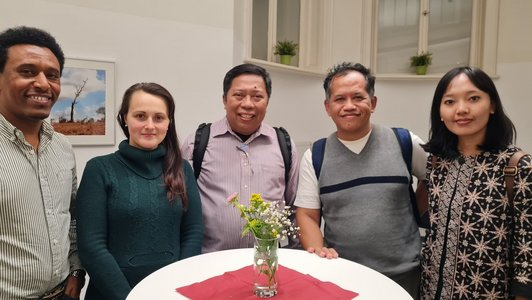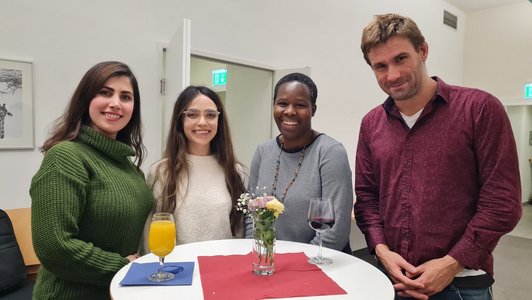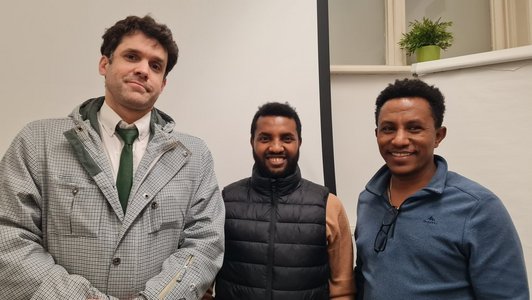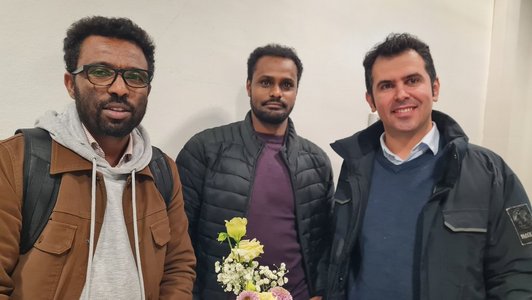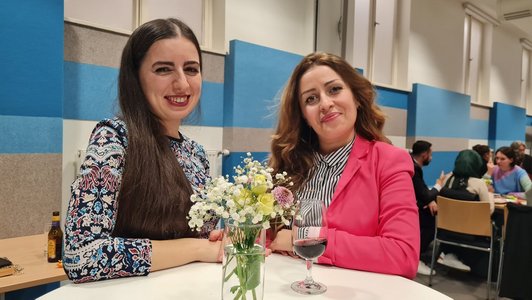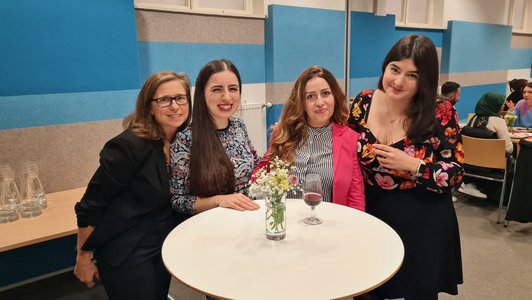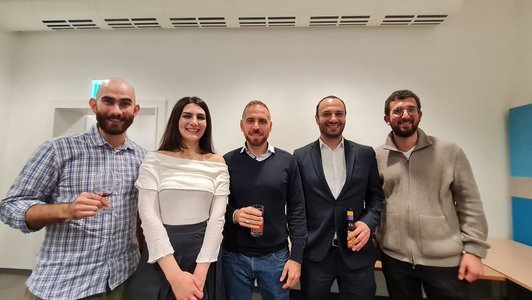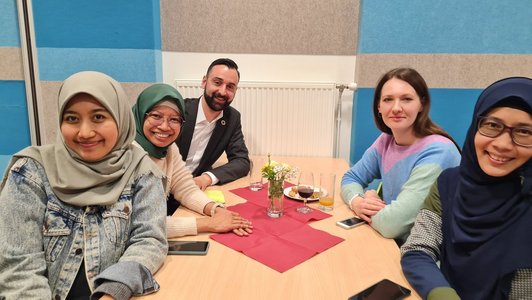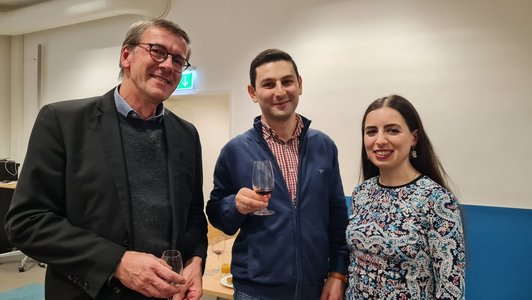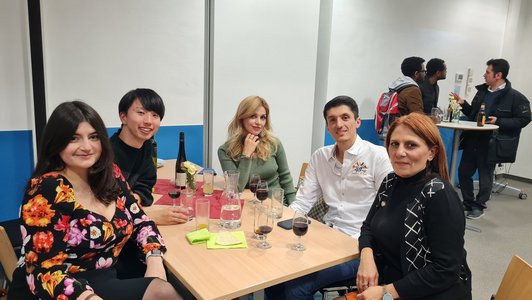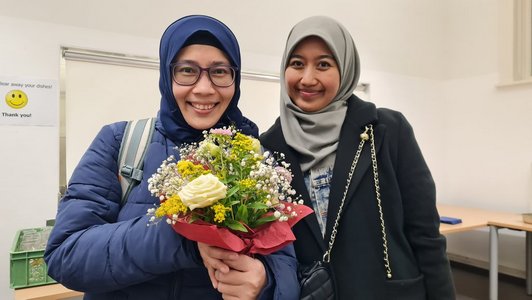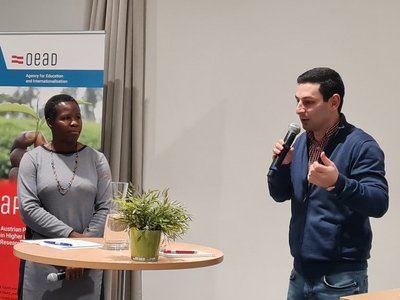

On behalf of the OeAD, Gerhard Volz, Head of International Cooperation in Higher Education, welcomed the guests and explained that the Alumni Talks aim to invite former scholarship holders to share their professional experiences before and after their stay in Austria with a broad public. He also explained that Armenia is a partner country of the Austrian Development Cooperation and that several APPEAR partnerships between Austrian and Armenian institutions are funded. Finally, he invited the participants to have a look at the OeAD.map, which displays registered OeAD-funded projects and allows OeAD scholars to present themselves in an international context.
The presenter, Stella Asiimwe, then took over and began the interview by asking Tigran about his educational background.
Tigran told us that he comes from Dilijan, a small resort town in the north of Armenia, within the territory of a national park. Even as a child he loved nature, a passion encouraged by his parents and grandparents. He decided to study geography at Yerevan State University in order to contribute to nature conservation and environmental education in Armenia. Tigran began working as a geography teacher during his Masters studies and was involved in various tourism development projects in the Dilijan National Park area.
However, he realised that there was a significant gap between what he was learning about tourism at university and what he was experiencing in real life. Having also worked as a teacher and understanding the 'power' of knowledge and education to change the world and prepare professionals in the field, he began to look for ways to bring university education and research closer to real life issues. He was nominated for a PhD at the University of Natural Resources and Life Sciences (BOKU) in Vienna, Austria, as part of the APPEAR project Transdisciplinarity for Sustainable Tourism Development in the Caucasus Region (CaucaSusT).
This partnership aimed to enhance university-community cooperation in the Caucasus Mountain Region with a focus on sustainable tourism development.
He researched on challenges and opportunities of integrating transdisciplinary approaches in post-Soviet academic institutions, with a particular focus on Armenia and Georgia.
Since then, he worked on sustainability issues and finding innovative solutions through transdisciplinary and participatory research methods. However, he realised that it was not enough to concentrate on environmental sustainability; people needed to be involved. Listening to them and understanding their needs and perspectives is very important if you want to achieve sustainability. Knowledge sharing and co-creation between academics, practitioners and policy makers can lead to practical solutions to societal problems.
As many current scholars were present, Stella asked if Tigran had any specific recommendations for them. Tigran pointed out that he had to deal with many challenges. For example, the low scholarship rate or the bureaucratic hurdles he had to overcome before his wife could finally come to Austria.
However, he emphasised the importance of thinking positively. To be open to the various opportunities that arise. For example, the university offers various, very affordable courses that help to improve academic skills. The OeAD organises cultural events and excursions where you can exchange ideas with other students, but also get to know Austria better. It is important to explore the country and society on your own. During the summer, he and his wife worked on a mountain farm on the border between Carinthia and East Tyrol, which brought them into contact with the rural population. Tigran also stressed the importance of learning German in order to find his way around Austria better.
Tigran also spoke about the APPEAR project EcoServ, a collaboration between Yerevan State University (YSU) and his former host institution, BOKU, in which he is actively involved. Using participatory methods rooted in transdisciplinary and citizen science approaches, EcoServ aims to contribute to sustainable water resources management in Armenia by enhancing the capacity of Yerevan State University (YSU) and the Scientific Center of Zoology and Hydroecology of the National Academy of Sciences to assess ecosystem services. In addition, the EcoServ team is developing a framework for assessing ecosystem services in Armenian wetlands, which will be made available to local ministries for implementation. Through this project, he aims to contribute to changes in the Armenian academic system.
Tigran has recently become a board member of the Caucasus Network for Sustainable Development of Mountain Regions (Sustainable Caucasus) Coordination Unit of the Scientific Network for the Caucasus Mountain Region (SNC-mt), an organisation that aims to develop regional approaches to cross-border problems at national and local levels. He also believes that change is only possible with a strong and committed team, and that researchers should collaborate rather than compete. Sometimes international projects and researchers from outside can bring in new perspectives and make it easier to tackle certain complicated issues. As a final comment on his research experience, he emphasised that when working with local communities, it is important to listen to them, respect them and learn from them. It is also important to avoid difficult scientific language and to communicate the results of your research at the end.
Following the interview there were many questions from the audience and a lively discussion about the responsibilities of a researcher in times of fake news and misrepresentation of science, and the ethics of a researcher when working with local communities.
The OeAD hosted a very international group at this event, with around 50 participants from 13 countries and also from different scientific backgrounds, as one participant noted: "The topic was interesting, although relatively far from my usual focus".
Another guest was very impressed by Tigran's message that it is important to keep positive energy even in a difficult situation, and that staying focused and interacting with others is crucial to success.
We conclude with a statement from one of the visitors: "I like that we were able to interact with people from different cultural and scientific backgrounds with the same vibe of wanting to understand".
Read this article to learn more about the doctoral research of Tigran Keryan.

